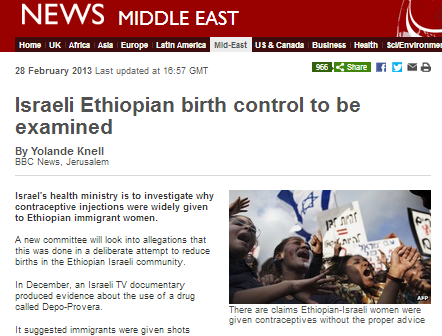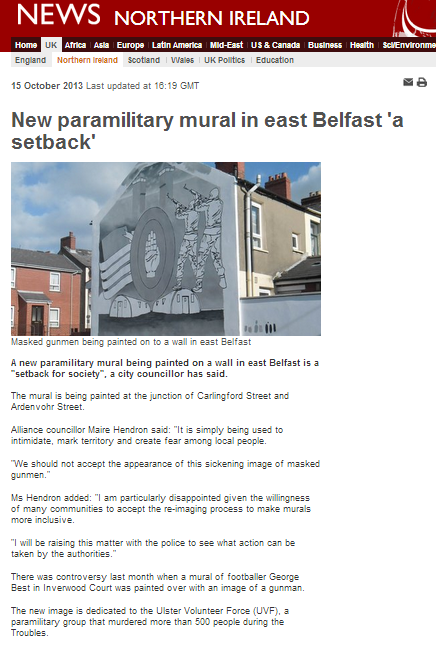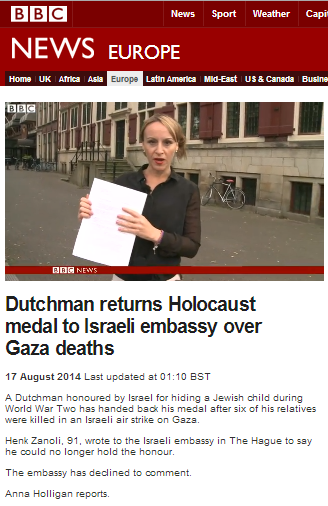As we saw yesterday, in among reporting on the European Song Contest, ‘Newsbeat’ journalists Steve Holden and Daniel Rosney also promoted a problematic “history lesson” to the their audience of 16 to 24 year-olds in an item broadcast on BBC Radio 1 and BBC Radio 1 XTRA on May 13th.
The next day – May 14th – on the same radio stations, ‘Newsbeat’ aired a “special from Gaza” by the same two journalists. A much-used BBC mantra was already seen in the synopsis.
“Newsbeat reporters Steve Holden and Daniel Rosney are in Gaza in the Middle East, one of the most populated places on Earth.”
[emphasis in italics in the original, emphasis in bold added]
Steve Holden introduced the item (from 00:00 here).
Holden: “Hello. This week we are in Israel and the Palestinian territories as people from all over the world come to the city of Tel Aviv for an event that is loved by millions – Eurovision. […] Tonight the first semi-final will be taking place.”
Rosney: “But we couldn’t cover that without coming here – 90 minutes along the coast – to one of the most talked-about strips of land in the world: Gaza.”
Obviously they could indeed have covered the Eurovision Song Contest without travelling to an unrelated nearby territory but they chose not to – just as they chose not to avoid providing amplification for the BDS campaign’s calls to boycott the event.
Holden: “It’s a chance for us to get into why that is and why it’s made this year’s Eurovision one of the most controversial ever. So let’s get straight to it.”
Rosney: “Listen to that. That’s the sound of the Mediterranean Sea. It’s a blazing hot day, white sand, blue water but you would never come here on holiday.”
Holden: “No you can’t visit Gaza. You need special permission to enter. We got permits as members of the press.”
The mantra seen in the synopsis was then repeated again:
Rosney: “It’s one of the most densely populated places on earth; smaller than the Isle of Wight but with almost 2 million people packed in. Palestinian territory bordered by Israel and Egypt.”
There are of course many other cities in the world with a higher population density than Gaza City and other places with higher population densities than the Gaza Strip as a whole. Interestingly, a map produced by the BBC in 2018 shows a higher population density in London than in Gaza.
Adhering to BBC editorial policy throughout the last 15 months, Holden went on to euphemistically describe the weekly ‘Great Return March’ violent rioting as “protests”.
Holden: “Over the next 15 minutes we’re gonna be talking about why it’s often in the news, the protests that happen here practically every week, the restrictions that affect daily life and the tension with Israel.”
Rosney: “Now it’s important to remember that Gaza is poor. According to the World Bank – an organisation which tries to reduce poverty – of which it says 40% of the population here are in. And youth unemployment rate is well above 60%.”
Holden: “Yeah and it’s also got one of the world’s youngest populations. Get your head around this: more than 40% of the people here are younger than 15 years old.”
Notably, neither Holden nor Rosney bothered to join the dots between poverty, youth unemployment and population density and the obviously relevant factor of birth rate.
‘Newsbeat’ audiences then got their second ‘history lesson’ in two days.
Rosney: “So before we find out why life is like this, we need to understand its history. So here’s Kat Collins.”
Newsbeat reporter Kat Collins came up with an account that has inaccuracy, misleading information or significant omission in almost every line, so let’s take them one by one.
Collins: “A strip of land home to nearly 2 million people, mainly Palestinian refugees. Hundreds of thousands of them living in refugee camps.”
Listeners were not told why there are still “hundreds of thousands” of refugees 71 years on or why Palestinians who have been living exclusively under Palestinian control for the past 14 years are still kept in refugee camps.
Collins: “A key point in Gaza’s history was World War Two and the mass murder of 6 million Jews under the Nazis.”
Here Collins promoted a classic narrative used by anti-Israel activists: the notion that Palestinians are suffering because of the Holocaust – or “mass murder” as Collins preferred to call that genocide.
Collins: “After the war Jewish people were promised their own country.”
No: the Jewish nation was promised a homeland by the League of Nations after the First World War.
Collins: “Israel was created: carved out of land that was known as Palestine.”
Listeners were not told the origins of the name Palestine and so would be likely to automatically assume – wrongly – that Palestine was the nation state of the Palestinians mentioned just seconds later.
Collins: “But the Palestinians and neighbouring Arab countries refused to recognise Israel as a country. Again there was war and thousands of Palestinians escaped to places like Gaza next door.”
Collins did not bother to inform listeners that Arab countries and the Palestinians conducted violent attacks long before Israel declared its independence or that roughly half of the refugees fled before Israel came into being. The fact that the Gaza Strip was part of the land designated by the League of Nations for the creation of a Jewish homeland and the Egyptian occupation of that area in 1948 of course did not get a mention.
Collins: “In the 1960s, another war. Israel captured Gaza.”
Listeners heard nothing of the background to the Six Day War, including the fact that the Gaza Strip was at the time under the control of its main instigator.
Collins: “Decades of fighting continued between Israel and the Palestinians. Throughout the 1990s Gaza was given more power though and in 2005 Israeli troops left the area.”
Apparently Collins believes it is appropriate to portray Palestinian terror attacks on Israeli civilians as “fighting” between the two sides. Her reference to the 1990s is unclear but perhaps relates to the Oslo Accords. Of course in 2005, all Israelis – soldiers and civilians alike – left the Gaza Strip and even the Israeli dead were exhumed. Collins then went on to promote the falsehood that there was “peace” after the Israeli withdrawal from the Gaza Strip when in fact terror attacks only increased.
Collins: “But peace didn’t last long and Israel still controls who and what goes in and out of Gaza. It says the blockade is for security reasons.”
Listeners were not told that the Gaza Strip also has a border with and crossing into Egypt. Neither were they informed that the blockade was implemented because of Palestinian terrorism.
Collins: “Palestinians there regularly fire rockets into Israel. They want Gaza to become part of a new State of Palestine with independence. Israel’s also attacked Gaza many times, saying it wants to stop the rocket fire.”
The Palestinian factions attacking Israeli civilians with rockets so not do so because they want “a new State of Palestine”. They do so because they want Israel to cease to exist.
Collins: “The opening ceremony for Gaza’s international airport. That was 1998 but not long after it was bombed by Israel. It’s never reopened.”
Collins failed to clarify that the airport was put out of action during the terror war waged by the Palestinians known as the Second Intifada.
Collins: “With access restricted, not many things get in or out of Gaza. Food is allowed in but aid agencies say people aren’t getting much meat or fresh fruit and vegetables.”
In fact everything gets into Gaza with the exception of dual use goods that can be used for the purpose of terrorism, for which a permit is required. Collins did not name the ‘aid agencies’ she cited but we have been unable to find any such claims from a serious source.
We did however find a professor from the Gaza Strip who stated that:
“…there is no shortage of food products in Gaza. “You can get anything you’re looking for at the supermarkets,” he testifies. “Fresh fruit and vegetables, meat and dairy products. The problem is that we’re falling between the Ramallah armchair and the Gaza stool: Abbas issued an order to cut government workers’ salaries, and some 100,000 families fell under the poverty line. Your heart explodes when you pass by the packed food stands, and the head of the household stands there and has to decide whether to buy cheese and bread or watermelon.”
The Palestinian Authority’s financial sanctions against Hamas – which also affect power supplies, sewage treatment and medical supplies – had however no place in the BBC’s ‘history’. Neither did the violent coup instigated by Hamas in 2007.
Collins: “In 2006 the Palestinian militant group Hamas became Gaza’s ruling party. Supporters say it is a legitimate fighting force defending Palestinian rights but countries like the UK, the US and Canada call its members…terrorists.”
Collins of course did not bother to clarify that the ‘right’ Hamas purports to defend is its declared aim of eliminating the world’s only Jewish state. Obviously she preferred to lead ‘Newsbeat’ audiences towards the erroneous belief that terrorism is defined by motive rather than action.
With ‘Newsbeat’ claiming to produce “news tailored for a specifically younger audience”, we once again get a good picture of what the BBC wants young people in the UK to know about the Arab-Israeli conflict – and what not.
The rest of this report will be discussed in part two of this post.
Related Articles:
BBC’s ‘Newsbeat’ gives younger audiences a ‘history lesson’




